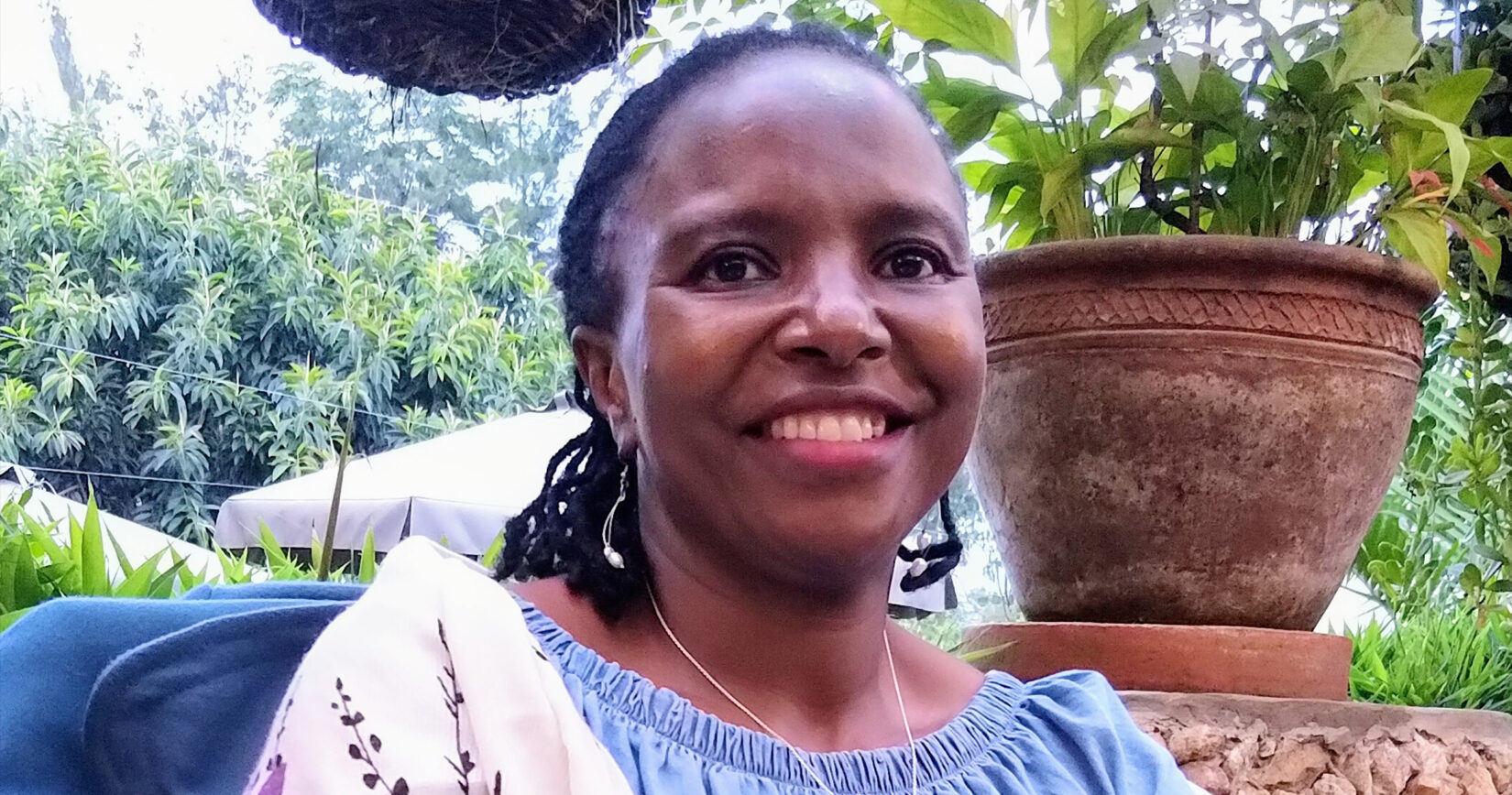
Esther Wanjiku Mwaura Muiru grew up in poverty, but says, “I always knew my self worth.” She is the founder of GROOTS Kenya, a national movement of grassroots, women-led community based organizations and self-help groups striving to ensure women take part in decision-making and development. She is currently a strategic advisor to GROOTS.
What does #EqualEverywhere mean to you?
#EqualEverywhere means the guarantee of universal human rights and the elimination of all forms of violence against women and girls. It means marginalized people can voice their priority needs and be included in decisions regarding projects and programs that affect them and their communities. It means freedom of expression and guaranteed opportunities for self determination and development.
Why do you advocate for equal rights for girls and women?
Globally, far too many women and girls are denied the benefits of development progress and suffer disproportionately from all forms of violence, exclusion, and poverty. They often shoulder the heaviest burden when it comes to sustaining communities and nature. It is unacceptable when their contributions to development are invisible and intentionally overlooked. Positioning women as key actors in #EqualEverywhere can accelerate global peace, end poverty, eliminate gender disparities, and fast track sustainable development.
What motivates you to do this work?
My commitment arose from my own experience growing up in abject poverty and in an oppressive social economic environment. Despite this, I knew my self worth and, with the help of others, forged my own path, grounded in a belief that everyone, everywhere, has the potential to thrive. Working in development is my life-long passion. Helping transform the lives of women and girls through the work of GROOTS Kenya and in my private life gives me purpose and fulfillment.
What are the main challenges you experience in your work to advance gender equality?
Effective collective action requires navigating political power, marshaling resources, and engendering goodwill among diverse stakeholders. Increasingly, some of the funders and other stakeholders with whom we interact are motivated more by self-interest than by a mission to do good. Another challenge revolves around measuring and reporting on human development outcomes. In the past, grassroots engagement and the power of individuals drove outcomes; this is changing given the power of social media. Indeed, an over-reliance on social media channels can lead to incorrect or misguided assumptions about where new investment is most needed.
What progress are you seeing as a result of your work?
The many girls and women who have survived and prevailed against oppression and inequality have become the greatest ambassadors for positive change. GROOTS Kenya continues to spark positive change across the country and beyond. A critical mass of grassroots communities now exists and is equipped to forge paths of change and demand accountability.
What progress are you seeing in the wider gender equality movement?
Globally, women and girls living in poverty and operating on the margins of development are increasingly recognized as core partners rather than as passive targets included in development outcomes. Most proposals mention the importance of grassroots women and girls and in some instances specify their roles in proposed initiatives. The commitment to leave no one behind and importance of investing in data and evidence are encouraging, especially for girls and women in rural and urban informal settlements. Hopefully the revitalization of the gender equality movement will further empower organizations like GROOTS Kenya across the world.
 BACK TO STORIES
BACK TO STORIES